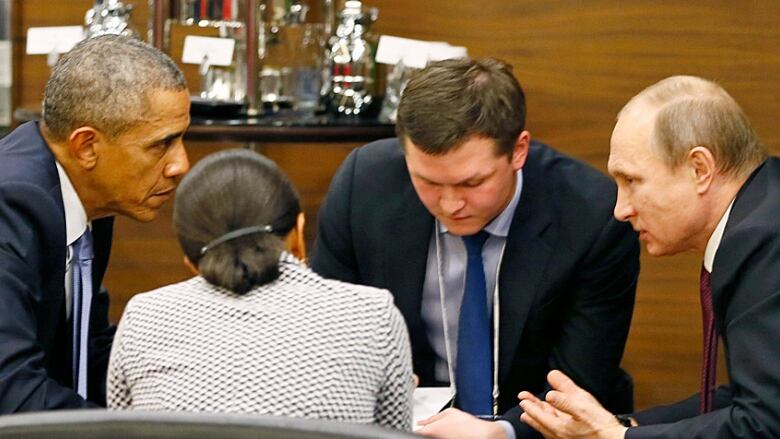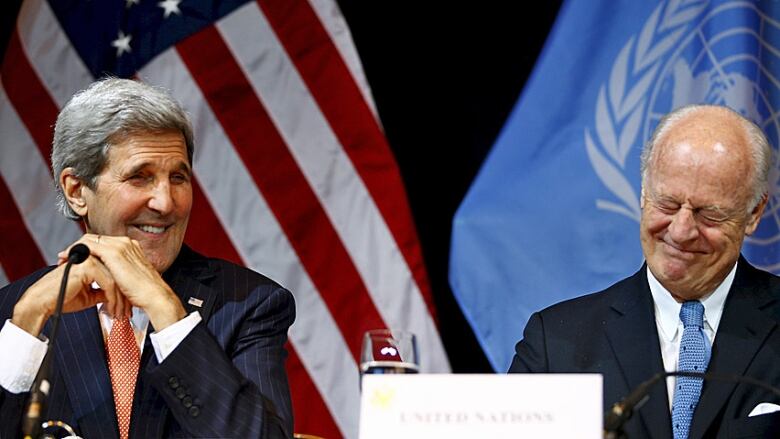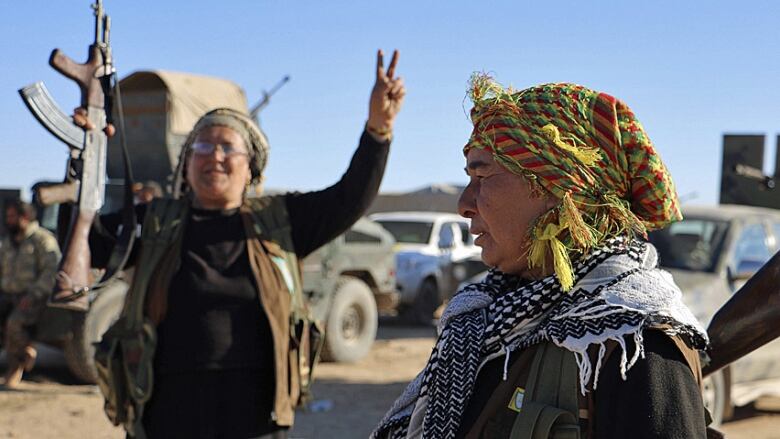There is a plan to end the war in Syria and it might even work
World powers, including arch foes, seem to have found some level of agreement on Syria without Assad

Something is definitely stirring at the Vienna talks aimed at ending Syria's vicious civil war and it looks suspiciously like hope however hard it is to credit any positive news these days.
The haggard diplomatic faces have been replaced by moderately happy ones, one sign that the meetings are going better than were expected a few months back.
No doubt the atrocity in Paris just over a week ago has had something to do with this.
Whatever the case, forward movement here is significant because there's arguably nothing the world needs more at this time than to terminate the bloody war that for almost five years has spewed add-on conflicts and insurgencies like volcanic ash over the entire Middle East and, now, much of Europe.
You can forget crushing ISIS, or slowing down the surge of refugees flowing out of the region until the world's powers act to clamp down on this historic eruption of violence and misery.
- Hollande to meet Obama, Putin this week, seeks global coalition against ISIS
- Syria ceasefire could be just weeks away: Kerry
It's difficult, of course, to speak of hope because nothing has a shorter lifespan when it comes to Middle East peace efforts.
"The Middle East is like a Rubik's cube that doesn't have a solution no matter how much you move the pieces around," as political writer Lawrence Wright famously put it some years back.
That said, some past wars in the region have been ended, often after war weariness saps the will to fight on, but also when major powers exert real pressure to end the fighting because it's in their particular interests.
Key concessions
Those signs, including war weariness, are now starting to emerge.
Key players on opposite sides of the conflict such as Russia and the U.S. seem to realize that this war is now feeding jihadist violence that is threatening all nations.
So they've started making concessions to arrive at a common roadmap for the differing Syrianfactions to follow.
Simplified greatly, the object is to get a ceasefire and some sort of collaboration between the Assad regime and the so-called moderate rebels by as early as January no less.
Then, using this transitional truce and lots of UN help, seek a new Syrian constitution to arrive at national elections and a new government within 18 months.

It's an optimistic deadline. But if a ceasefire can be arranged that should also accelerate efforts to eliminate ISIS and other jihadist militias on the ground, while, at the same time, establishsafe havens where Syrians and northern Iraqis can start rebuilding their countries.
Lest this all seem like a pipedream, remember that these Vienna talks have succeeded in getting 17 parties of some considerable clout to the table.
Among others, the list includes the five permanent members of the UN Security Council as well as all the important regional powerhouses such as Iran, Saudi Arabia, Egypt, Turkey and the Gulf States.
Maybe most notable is that Iran and Saudi Arabia, two of the most diehard foes you can find, and who both helped fuel the war, appeared in the same conference room for the first time, to the astonishment of the world's media.
Both wouldn't be there if they weren't convinced something big is in play.
Assad's time is up
To get the process this far, concessions have been required. Western partners have dropped the "Assad must go" demand as the two main backers of his regime, Russia and Iran, were unwavering in their insistence that Bashar al-Assad must at least be part of the initial transitional administration.
At the same time, it seems clear that both Moscow and Tehran have told Assad that his time in power is limited.
He's being pushed to prepare for power-sharing with rebels, and will likely exit as any new constitution and elections loom.
The tricky bit here involves getting Russia and Iranto deliver the Assad government to the process, and for Obama and the West to do the same with the non-jihadists who have been fighting him, an always fractured alliance.
Many rebels will scream betrayal if Assad remains even temporarily, but the U.S. and Europeans, and possibly even Saudis, are making it clear the world wants this war ended.

Many U.S. Republicans are also upset that these emerging deals would appear to leave Russia and Iran with some permanent stakes in Syria.
But what is not in anyone's interest is to see Syrian government infrastructure destroyed the way it was inIraq, leaving anarchy behind.
So the peace process calls for essential government structures bureaucracy, army, economic infrastructure, schools and such to remain intact.
One key detail: The future constitution will insist on a non-sectarian government with firm guarantees for all religions and ethnic groups, including Kurds, Sunnis, Alawites and Orthodox Christians (a population strongly backed by Russia).
In other nations wracked by long civil wars, such as Lebanon, years of outside financial aid was needed, not just to rebuild bombed-out buildings and spur economic revival, but to persuade refugees it was safe enough to return home.
Such is the desire to solve the Syria problem that diplomats are already speculating on the massive Marshall plan-type program to come, to be financed largely by Western powers and Gulf States.
After all these years when you wouldn't dare link the words Syria and peace in the same sentence, well, it may actually happen.












_(720p).jpg)


 OFFICIAL HD MUSIC VIDEO.jpg)
.jpg)



























































































